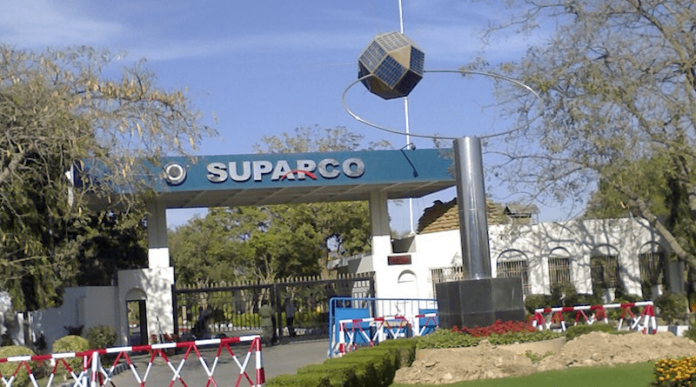- Advertisement -
ISLAMABAD, Jan 19 (APP):The first fully indigenous Electro-Optical (EO-1) Satellite, launched by Pakistan Space and Upper Atmosphere Research Commission (SUPARCO) on Friday, is expected to enhance country’s capabilities in agriculture, disaster management, environmental monitoring and other sectors, symbolizing its growing expertise in space sciences.
The landmark event took place at the Jiuquan Satellite Launch Centre (JSLC) in China, symbolizing a significant leap in Pakistan’s space journey and its commitment to achieve self-reliance in advanced sciences. Designed and developed entirely by Pakistani engineers, EO-1 represents a breakthrough in the country’s space science capabilities.
The satellite, equipped with cutting-edge imaging technology, is expected to provide substantial benefits across various sectors, including agriculture, environmental monitoring, urban planning, and disaster management.
This achievement aligns with Pakistan’s National Space Policy and reinforces its commitment to harnessing advanced technologies for national progress.
“This is a historic milestone for Pakistan,” said Zain Bukhari, an expert at SUPARCO, in an interview with APP. “EO-1 is equipped with a high-resolution camera that will capture detailed images of Earth, offering multiple applications. It is the first satellite fully designed and manufactured locally by SUPARCO’s engineers, demonstrating the nation’s capability to achieve self-reliance in space technology.”
“The satellite launch after rigorous testing was a proud moment for the whole nation”, he observed.
Recalling the country’s achievements, Zain Bukhari who is General Manager at SUPARCO, shared that Pakistan’s space journey began in 2011 with the launch of PakSat-1R, a communication satellite developed with the support of China, which continues to function effectively.
SUPARCO achieved another milestone in 2018 by launching two satellites—PakTES-1A and Pakistan Remote Sensing Satellite-1—on the same launcher with China’s assistance.
In 2024, the successful launch of PakSat-MM1-a communication satellite- brought high-speed internet to remote areas, further solidifying Pakistan’s space ambitions.
The expert shared that SUPARCO also facilitated the development of the iCube Qamar satellite in 2024, a project led by students of the Institute of Space Technology (IST).
The satellite, which observed the lunar surface and captured real-time images, not only showcased local talent but also encouraged the younger generation to pursue careers in space science.
As an agrarian country, Pakistan stands to benefit significantly from the EO-1 satellite.
According to Zain Bukhari, the satellite’s capabilities will revolutionize agricultural practices by providing data on crop suitability, water requirements, and efficient resource use.
This will help educate farmers and minimize resource wastage.
In addition to its agricultural applications, EO-1 will play a critical role in disaster management. “During floods and earthquakes, it is often impossible to assess damages immediately. Satellites like EO-1 can provide crucial data in real time, enabling authorities to make informed decisions about relief and rescue operations,” he explained.
He also emphasized the satellite’s importance in addressing climate change. With advanced technology to monitor deforestation, glacier melting, and other environmental changes, EO-1 will provide valuable insights to tackle global warming and drive sustainable development.
Meanwhile, Aisha Rabia, another expert from SUPARCO, highlighted the satellite’s potential to benefit sectors like urban development, resource extraction, and conservation.
“EO-1 will aid in monitoring minerals, oil and gas fields, glacier recession, and water resources. It reflects Pakistan’s ability to achieve self-sufficiency in satellite manufacturing despite economic challenges,” she said.
About the agency’s programs for students, Aisha Rabia shared that SUPARCO’s efforts extend beyond satellite launches, with initiatives to nurture the next generation of space scientists.
The programs like the Space Education Awareness Drive (SEAD) and the annual celebration of World Space Week aim to engage students from primary schools to universities in space-related activities.
Looking ahead, Zain Bukhari said that SUPARCO has ambitious plans for deep space missions and scientific research to further expand Pakistan’s presence in the global space arena.
Such projects are expected to inspire greater investment in space technology, create job opportunities for youth, and strengthen Pakistan’s position in the global space arena, he said.
For him, the launch of EO-1 was undoubtedly a historic occasion, symbolizing Pakistan’s determination to advance in space technology and contribute to national progress.

